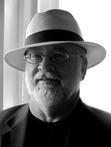Bruce DeSilva's Blog, page 47
May 9, 2012
Ace Atkins Brings Back Robert B. Parker’s Iconic P.I., Spenser
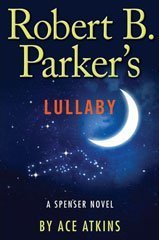 A few months after Robert B. Parker died of a heart attack at his writing desk in January of 2010, his publisher, G. P. Putnam’s Sons, approached Ace Atkins with a proposition. Parker’s family wanted Spenser, one of the most iconic private detectives in crime fiction history, to live on; and they were searching for the right writer to continue the series. Would Ace like to audition for the role by sending in 50 sample pages?
A few months after Robert B. Parker died of a heart attack at his writing desk in January of 2010, his publisher, G. P. Putnam’s Sons, approached Ace Atkins with a proposition. Parker’s family wanted Spenser, one of the most iconic private detectives in crime fiction history, to live on; and they were searching for the right writer to continue the series. Would Ace like to audition for the role by sending in 50 sample pages?
This was not an offer to be taken lightly.
Picking up a master’s mantle is never easy. Parker, one of the greatest crime-fiction stylists of the last 40 years, provided his own proof of that. When he attempted to mimic the great Raymond Chandler, completing the latter’s unfinished novel, Poodle Springs (1989), and then writing Perchance to Dream (1991), a sequel to Chandler’s classic, The Big Sleep, the reviews were decidedly mixed.
Like Chandler, Parker seemed to be too much of an original to ever be replaced.
The appeal of Parker’s novels, after all, could not be explained by his smart-alecky hero, his gritty Boston setting, and his often thin plots. Readers treasured the Spenser novels primarily because of the author’s distinctive storytelling voice, a breezy style characterized by lots of ironic dialogue and crisp, short sentences that jitterbugged across the page in a cadence you could dance to.
Parker thought so himself. Some years ago, when I asked him why his work was so popular, he said this: “It’s the same reason that they like certain songs. . . . They like the way they sound.”
Atkins’ challenge, if he dared to accept it, would be to reproduce that sound. If he succeeded, readers would wonder if Parker were dictating the stories from the grave. If he failed, he would come off as a second-rate Comedy Store impressionist.
He had plenty of reasons to decline. His brilliant historical crime novels, including White Shadow and Infamous, had established him as a major figure in the genre. And he was about to launch a new series featuring a crime-busting former U.S. Army Ranger named Quinn Colson. The first book in that series, The Ranger, was a finalist for the prestigious Edgar Award for best novel this year.
But Atkins also had reasons to accept.
As a kid, he’d picked up a paperback copy of Parker’s first Spenser novel, The Godwulf Manuscript, at a second-hand store and was immediately hooked. By the time he entered Tulane University, where he was a good enough football player to make the cover of Sports Illustrated in his senior year, he was on his way to amassing a collection of Parker’s signed first editions. Parker’s Spenser novels, Atkins said at a recent book signing at the famous Mysterious Bookstore in Manhattan, were the reason he decided to become a writer.
But there was more to it than that.
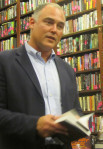
Ace
During Atkins’ sophomore year at Auburn, his father died suddenly. At the time, he was an immature kid trying to figure out how to become a man, and he was utterly lost. His coaches, who didn’t understand how a kid could want to play football and read at the same time, were no help. Neither were his professors, who couldn’t understand how a kid who wanted to write could also be a football player. It was Spenser, Atkins says, who taught him how to be a man.
Some of the lessons imbedded in all those detective stories: How to be your own man instead of the one others wanted you to be, the importance of tolerating those who are different from you, how to appreciate the finer things, and, most of all, how to live life well.
“You can stumble though life drinking Miller Light, or you can reach for the Sam Adams Winter Lager,” Atkins writes in In Pursuit of Spenser, a new anthology of meditations on Parker edited by Otto Penzler and published recently by BenBella Books.
So when the call came, Atkins didn’t hesitate. He wrote those 50 pages and sent them in. The publisher promptly forwarded them to Parker’s widow.
Joan Parker, the model for Spenser’s love interest, Susan Silverman, is a slim, charming woman with a quick wit and little patience for pretenders. At that recent Mysterious Bookshop signing, she sat at Atkins’ side and explained what happened when the publisher told her they had found the man to continue her husband’s legacy.

Joan
When Robert Parker was young, he was known as Ace, she said, so when she heard the name Ace Atkins, she had the feeling it was meant to be. Then she picked up those 50 pages, and the first paragraph convinced her it was so. In Atkins’ prose, she heard her husband’s voice.
She has a good reason to say that; she wants to sell books. But she also has a better reason. It’s true.
That first paragraph:
“I spotted the girl even before she knocked on my door. I was gazing out of my second-floor office window down at Berkeley Street, eating a cinnamon donut and drinking coffee with a little milk and sugar. The girl looked lost among the businesspeople and tourists hustling along the icy sidewalks. She wore a pink Boston Red Sox cap and an oversized down parka with a fur collar, and stared up at the numbers on the office buildings where Berkeley intersects with Boylston.”
Everything about that is pure Parker.
Read on, and it’s all there: The crisp, rhythmic sentences. The ironic banter. The distinctly Spenserian attitude toward life that Atkins adopted as his own. And yet, those who have read both Parker and Atkins closely may also detect a muted, indefinable quality that’s pure Atkins. And that’s a very good thing.
The plot, which has more substance than you will find in most of Parker’s later novels, begins when Mattie Sullivan, a street-wise kid stuck with looking after her younger siblings, insists that the police botched the investigation of her mother’s murder. She asks Spenser to investigate. Spenser doubts that she’s right, but, being Spenser, there’s no way he can turn her down. As he digs into the case, the cops and some of Boston’s ubiquitous thugs try to discourage him.
Those familiar with Spenser know that’s something that cannot be done.
As the story unfolds, Spenser turns to his black sidekick, the menacing but loyal Hawk, for help. Fans of the series will welcome the return of Hawk, who had been largely absent from Parker’s recent novels.
After Atkins was chosen, the publisher offered to send him all of the Spenser books so he could fully acquaint himself with the ins and outs of the series. “Are you kidding?” Atkins replied. “I’ve already got them all.” At the Mysterious Bookshop, Atkins said that as he wrote the novel, he was always conscious of trying to create the next Spenser book that he wanted to read.
Ace Atkins is not the first writer brought on board to bring new life to a Parker series. Last year, Jesse Stone, the police chief of mythical Paradise, Mass., returned in a novel titled Killing the Blues. But Michael Brandman, who had worked as a producer and screenwriter on the made-for-TV Jesse Stone movies starring Tom Selleck, made a mess of it.
He tried to recapture the ironic patter between Stone and the series’ other familiar characters, but the attempts at humor often fell flat. And Brandman’s attempt to mimic Parker’s musical style produced a stream of short sentences that plodded along with the monotony of a metronome.
Brandman is not the writer that Atkins is, but his failure puts an exclamation point on Atkins’ achievement. Parker lives. Spenser is back. And I can’t wait for the next one.
Discloser: Ace Atkins wrote some words of praise that appeared on the jacket of my first crime novel, Rogue Island. Lately, I’ve gotten to know him, and I consider him a friend. But I value my reputation as a reviewer too much to praise a book as a favor to anyone. If I didn’t love this book, I would have just kept my mouth shut.
You can buy the new Spenser novel here.








May 4, 2012
More Honors For My Brilliant Wife Patricia Smith
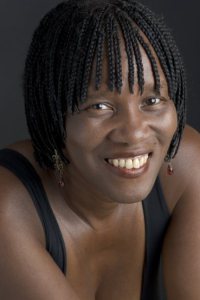 My wife Patricia Smith has won her second Pushcart prize for poetry.
My wife Patricia Smith has won her second Pushcart prize for poetry.
And she’s just been selected as a MacDowell Fellow and will be spending several weeks working at the New Hampshire artist colony this summer. This is a big deal.
Since its founding more than 100 years ago, MacDowell has provided creative space and fellowship to our greatest artists including Leonard Bernstein, Thornton Wilder, Aaron Copland, James Baldwin, Spalding Gray, and, more recently Alice Walker, Alice Sebold, Jonathan Franzen, and Michael Chabon.
As always I’m very proud of Patricia.
Her latest poetry collection, Shoulda Been Jimi Savannah, is pure genius. You can find it, and the rest of her work, here.








May 3, 2012
An Interview With David Freed, Author of “Flat Spin”
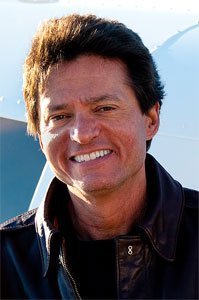 A few months ago, David Freed sent me his first novel and asked me if I would read it and write a few words of praise for the book jacket. I had several reasons to say no.
A few months ago, David Freed sent me his first novel and asked me if I would read it and write a few words of praise for the book jacket. I had several reasons to say no.
At the time, I was working feverishly to finish the third novel in my Mulligan crime series, and I resented the interruption. Besides, the Associated Press, for which I write book reviews from time to time, has a policy against its writers making commercial endorsements. And I’d never heard of David Freed. I had no reason think the book would be any good. But I cracked Flat Spin open anyway and was immediately hooked.
Before I reached the last page, I knew this newcomer had written one of the best crime novels I’d read all year. So, instead of writing a bit of book jacket copy, I cranked out a full-blown review.
I also decided that I, and my readers, would like to get to know David better, so I interviewed him for this blog. Here’s how the conversation went:
BD: Pitch Flat Spin to us in 25 words or less.
DF: A wise-cracking government assassin-turned-flight instructor is asked by his ex-wife to help investigate the murder of the man she dumped him for.
BD: One of the reasons I like crime novels is that they are usually written by people who led other lives before becoming writers–unlike those who go straight from MFA programs to writing careers. That gives crime novelists something real to say about the world we live in. You’ve had more experiences than most. Tell us about that, and about how it enriches your work.
DF: There is no better training ground when it comes to writing fiction, in my opinion, than writing nonfiction. I spent nearly 20 years doing just that, largely covering the military and law enforcement as a newspaper reporter. I hung out with homicide detectives and convicted killers, rubbed elbows with spies and commandos, covered a war, watched a few autopsies, once witnessed an execution, and interviewed literally thousands of people, from the truly heroic to rabid sociopaths. And the cool part was, I got paid to do it—although not very well, as I’m sure you can appreciate, Bruce, being a former newspaper guy yourself.
BD: Since you’re being modest, I’ll add that during your stint at The Los Angeles Times, you were a solo finalist for the Pulitzer Prize and shared in the Pulitzer for coverage of the Rodney King riots.
DF: After leaving the world of daily print journalism, I labored briefly as an investigator for CBS News, helping cover the OJ Simpson murder case, before landing work in Hollywood as a screenwriter, writing for national magazines, and as an asset within the U.S. intelligence community. As a recreational outlet, I also earned a pilot’s license along the way. I suppose I always figured that all of that real world experience would eventually lend itself in some fashion to the less-than-real world of crime fiction. That I‘ve been able to incorporate some of my experiences in my first novel has been very satisfying.
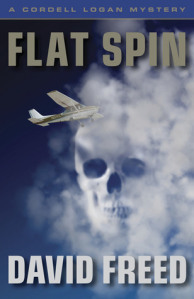 BD: Flat Spin, the title of your debut thriller, is the name of a complex, treacherous flight maneuver that only the most accomplished pilots should risk. Have you tried it? And if so, did you live through it?
BD: Flat Spin, the title of your debut thriller, is the name of a complex, treacherous flight maneuver that only the most accomplished pilots should risk. Have you tried it? And if so, did you live through it?
DF: Chuck Yeager inadvertently entered a flat spin in The Right Stuff and crashed big time. Ditto Maverick and Goose in Top Gun—and Goose died! If pilot gods like that couldn’t recover from a flat spin, there’s no way a mere mortal pilot like me ever would. I’ve never attempted one and I hope I never will. However, the hero of my book, Cordell Logan, flew Air Force A-10 Warthogs in Desert Storm. He probably wouldn’t hesitate to give it a shot under the right circumstances because that’s the kind of balls-out dude he is.
BD: Logan is tough, all right, but he’s vulnerable, too. When he longs for his beautiful ex-wife Savannah, his pain is so real that the reader’s heart will ache. Something you know from experience, or are you just good at making the love stuff up?
DF: I’ve never been divorced, fortunately, but I certainly have had my heart broken a time or two. Like all of us, I also can count no shortage of friends and relatives who’ve gone through traumatic break-ups of their own. Some, like Logan, never get over them. The searing emotional pain that comes with watching a special person walk out of your life is endemic to us as a species; it’s an experience to which virtually every reader can relate. Which makes our work as a writers that much more relatable when making the “love stuff” up.
BD: I have been divorced, but when it comes to writing love scenes, I freeze. Fortunately, I am now married to one of our greatest living poets, Patricia Smith. So when I need some of that “love stuff,” I call her over and say, “Honey, what do you think these two love birds would say or do here?” I do feel comfortable touching on my characters’ religion, however, so I was fascinated by Logan’s. His recent conversion to Buddhism doesn’t seem to be going very well, his struggles to find inner peace providing the funniest parts of the book. Anything autobiographical about that?
DF: I’m not a Buddhist, though I am intrigued with the religion and admire those who strive to achieve its Zen-like tranquility. Buddhism boiled down espouses little more than the Golden Rule. It encourages a peaceful, nonjudgmental, live-and-let-live lifestyle. Nothing wrong with that. Logan’s problem is that he is a man quick to action and does not suffer fools gladly. Plus, he has a weakness for carne asada burritos, which true Buddhists, who are generally vegetarian, tend to frown on. In that regard, there may well be some autobiographical linkage between Logan and me. I doubt I could ever fully embrace any religion that rejects meat burritos.
BD: Or, in my case, Irish whiskey and cigars. In describing your life experiences, you downplayed your technical expertise, which includes scripting computerized training simulations for the Defense Intelligence Agency and the U.S. Army’s Battle Command Lab. Most novelists who have a lot of technical expertise are clumsy writers. Your prose is both muscular and musical—and sometimes verges on poetry. Where did you learn to write like that?
DF: Thanks for the compliment. Truthfully, though, I’m not sure how to answer the question. Writing is a craft. The longer you hone any craft, the more competent you should become. I believe that writing is rewriting. The only way to write well, for me anyway, is to never be content with what you’ve written. Rewrite your prose until it sings to your ear. Always strive to improve it, even if it means rewriting it a dozen times or more.
BD: Amen. People think they read with their eyes, but they really read with their ears. Years ago, the late great Robert B. Parker told me that people love his Spenser private detective novels for the same reason they like certain songs. They like liked the way the sound. Flat Spin, of course, is not really a P.I. novel. How would you place it in the various crime sub-genres? Which writers in that tradition most influenced you, and how?
DF: For better or worse, I’m not sure Flat Spin falls squarely in any defined sub-genre of crime fiction. It’s not a police procedural. It’s not a cozy.
BD: Well, it sure isn’t a cozy. I’d categorize it as a literary thriller.
DF: If anything, I’d say it’s a funny whodunit. Logan is a hardboiled bad ass in the mold of Parker’s Spenser. He’s also a sardonic smart ass ala Gregory McDonald’s Fletch. Toss in a reluctant amateur sleuth who flies his own airplane like “Sky King,” and what you have, I hope, is a book that humors readers more than it horrifies them.
BD: Whatever it is, it’s damned good. Tell us about your writing process. Do you outline or make it up as you go along? Do you polish as you go, or do you bang out a rough first draft and then revise?
DF: I start out with a fairly basic outline to the extent that I know where the story begins and where it will end. I’ll add a few major plot beats to the skeleton. Then I’ll go back to the beginning of the outline and, in narrative fashion, with as much detail as I can reasonably muster, script the first several dozen pages of the book. It’s not unlike a football coach who lays out the first 10 or 15 offensive plays he wants his team to run. Doing so creates foundation and rhythm, both of which help dictate the rest of the game. I’ve found that some of my most satisfying creative turns come on the fly, when I allow my characters to speak to me. Holding fast to a set outline, for me anyway, does not allow much maneuver room.
BD: I do pretty much the same thing, minus the initial outline. I start off with a vague idea of what the book will be about and then just set my characters in motion to see what they will do and say. I find that if I don’t know what’s going to happen next, my readers probably won’t either. So tell me, what do you read for pleasure, and what recent books–other than mine, of course–do you most admire?
DF: By virtue of my journalistic background, I tend to read a lot of nonfiction, especially biographies, political exposes, American history, and modern adventure. I like a lot of Jon Krakhauer’s stuff. Likewise the work of Sebastian Junger. If I become particularly interested in a subject–the JFK assassination and the decisions that led George W. Bush to invade Iraq are two recent examples that come to mind–I’ll typically read many books in that area, one after the other. As far as fiction goes, I’m all over the map. Nobody did it better than Faulkner and Steinbeck, in my opinion. Relatively little-known James Salter is certainly among the most brilliant American wordsmiths alive today. I read “City of Thieves” not long ago by David Benioff and thought it exceptional. I’m currently reading “Matterhorn,” a very impressive novel about Marines fighting in Vietnam written by Karl Marlantes, himself a former grunt. Truth be told, I tend not to read many mystery-thrillers these days, if only because I don’t want to be envious of authors who are vastly more skilled than me, and also because I don’t want to subconsciously imprint their work on mine. That said, however, I am truly looking forward to reading “Cliff Walk,” the much-anticipated second Mulligan crime novel written by a certain Edgar Award-winning author whom we both know but who shall remain nameless here ‘lest I be accused of flagrant pandering.
BD: Pander all you want, pal. So what’s next for David Freed and Cordell Logan?
DF: If all goes according to plan, the next Logan mystery will hit the shelves in 2013. I won’t give too much away other than to say something dramatic happens to Logan that will change his life forever. How’d that for a tease?
BD: Perfect. I can hardly wait. Any advice for aspiring crime novelists?
DF: Live as large a life as you can–and take good notes. That way, you’ll have material that resonates with at least a patina of authenticity when you ultimately do decide to try your hand at that first novel. Then write. Don’t go to Starbucks and say you’re going there to write when we all know you’re really there to eye the local talent. Don’t go to endless workshops and talk about being a writer. Write. Even if it means missing a couple hours’ sleep a night, getting up early before your day job begins, or staying home when your friends are out partying, you cannot be a writer without walling yourself off from the world, planting your butt in a chair, and writing. Maintain a schedule. Tell yourself you’re going to crank out a certain number of words each day, then do it. It’s like going to the gym. You’ll never build any muscles by working out once a week or every couple of weeks. Build up a head of steam and maintain it. The late great John Gregory Dunn once described writing as nothing more than laying one length of pipe in front of another until the pipeline is complete. Dunn definitely had it down.
BD: Great advice. The main difference between a novelist and someone who aspires to be one is discipline. I urge the wannabes not to be overwhelmed by the seemingly huge task of writing a whole book. Just write 800 words a day every day and you can finish an 80,000-word crime novel in 100 days. That’s how Parker managed to write 70 novels between the age of 42, when he started, and 82, when he died at his writing desk.
DF: And one more thing: don’t share your crime novel with anybody until it’s 100 percent finished and as good as you can possibly make it. Little will undermine a writer in mid-project faster than the often half-baked creative suggestions of otherwise well-intentioned acquaintances who wouldn’t know good writing if it kissed them on the lips. It’s your book. Don’t let anybody else tell you how to write it until a reputable publisher offers you a seven-figure deal. Then rewrite it exactly as they say!
BD: When you win the Edgar Award for best first novel, where are you going to display it?
DF: LOL, as my kids would say. Hey, don’t get me wrong. I’d love to win an Edgar. From your lips to the Buddha’s ears. But I learned long ago that a writer’s true reward comes not in plaques or shiny pieces of hardware to put up on the mantle (or in a box up in the attic, as the case may be in my house). It comes in connecting with the public. If Flat Spin brings readers pleasure, helps them escape for a few hours the pressures and frustrations of daily life that we all endure, I will be more than happy.
BD: That’s how I always felt about awards during my long journalism career, but as a novelist I love awards. Why? Because they help sell books! One last thing, David. Where can we find you online?
DF: David-Freed.com. Thanks, Bruce!
BD: You can order a print or Kindle edition of David’s book here:








May 1, 2012
“Booklist” Calls “Cliff Walk” Terrific on Every Level.
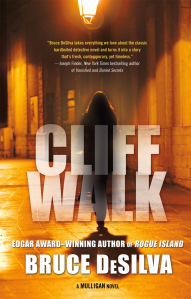 Booklist, one of the bibles of the publishing industry, has just published a rave review of my new crime novel, Cliff Walk, which also got a starred review in Publishers Weekly recently.
Booklist, one of the bibles of the publishing industry, has just published a rave review of my new crime novel, Cliff Walk, which also got a starred review in Publishers Weekly recently.
Here’s what Booklist had to say:
“Ex-journalist DeSilva won both the Edgar and Macavity awards for best first novel with his debut thriller, Rogue Island (2010). His second book proves the awards were no fluke.
“Liam Mulligan returns as a man who fell in love a long time ago with the wrong profession, journalism, and who records the layoffs and cutbacks inflicted on his daily paper in Providence, Rhode Island, as he struggles to keep doing investigative work. A last-minute assignment to cover a soiree at a Newport mansion finds Mulligan catching a breather on the famed Cliff Walk fronting the mansions and facing the sea. He’s just in time to see a man in a tuxedo fall to his death on the rocks below.
“The man turns out to be an Internet pornographer with ties to Rhode Island’s power elite. And his death turns out to be from a gunshot in his neck. Mulligan has to convince “Thanks-Dad,” the son of the paper’s publisher, to let him investigate.
“His examination into the Cliff Walk murder leads into the porn empire that has tentacles into so many power brokers’ pockets, and into a series of child murders. Although DeSilva is writing about pornography, he never exploits it for cheap thrills. His plotting is exquisite.
“Mulligan’s musings on the dying newspaper industry, coupled with his unrelenting love and respect for journalism, could only come from someone like DeSilva, who worked for AP for decades. Terrific on every level.”
Cliff Walk will be published on May 22, but both hardcover and Kindle editions are available for advance orders here.








April 27, 2012
“Cliff Walk” Will Keep You Turning the Page — a Review
 Scott MacKay of WNRI Radio, the NPR affiliate in Providence, R.I., has written a review of my new crime novel, Cliff Walk. Here’s what he had to say:
Scott MacKay of WNRI Radio, the NPR affiliate in Providence, R.I., has written a review of my new crime novel, Cliff Walk. Here’s what he had to say:
“Bruce DeSilva has our state down, from its claustrophobic culture to its florid politics and the crime and corruption that have been part of the Ocean State since Roger Williams paddled his canoe across the Seekonk River and founded Divine Providence in 1636.
“DeSilva’s first Rhode Island-centered novel, Rogue Island, was a laugh-out-loud caricature of our state. Cliff Walk is darker, with a focus on the sex-for-hire and pornographic movie industries
“Here you will find such gems as the scenes from inside Providence’s gritty strip clubs; the precise filet mignon sauce from the menu at the Capital Grille; the swells at the Gilded Age mansions of Newport, and the seamy underbelly of the state’s mobsters and cops. . . . The newspaper racket is depicted in all its raffish glory, as if Ben Hecht’s Front Page crashed into the Internet age.
“In Cliff Walk, DeSilva finds the humanity in the futile, charm in the quotidian, and hope amid life’s brokenness. Think Robert B. Parker moved south from Boston to Providence, with quahogs and Killian’s standing in for lobster and fine wine. Cliff Walk will keep you turning the page and reminding you why Rhode Island has long been described as a theme park for reporters and detectives.”
The novel, the sequel book that won both the Edgar and the Macavity Awards, will be published in hardcover and kindle editions by Forge on May 22. You can purchase advance copies here.








April 24, 2012
An Italian Website Reviews the Italian Edition of “Rogue Island.”
 Rogue Island, the title of my first novel, is a pun (a play on “Rhode Island”), so it doesn’t translate into Italian. The Italian edition of the book, just published by a major house in Italy, has been retitled Il Piromane, meaning the Pyromaniac. And it was just reviewed by Thriller Cafe, a leading Italian book review website.
Rogue Island, the title of my first novel, is a pun (a play on “Rhode Island”), so it doesn’t translate into Italian. The Italian edition of the book, just published by a major house in Italy, has been retitled Il Piromane, meaning the Pyromaniac. And it was just reviewed by Thriller Cafe, a leading Italian book review website.
The review begins with a brief summary of the plot and then, (according to Google translate), it says this.
‘The Pyromanic could be described as a masterful exploration of investigative journalism in 349 pages. Released from the pen of a 40-year veteran of the press, Bruce DeSilva, this fiction debut has already received great acclaim in the United States, winning the Edgar Award for best first novel.
“With few but precise outlines, DeSilva draws the various actors in this drama, giving to each language and psychological motivations conforming to their nature, and making them so vivid that the reader is led to expect that they can almost pierce the pages and stand in the air.
“The issues addressed are the most current one can imagine: the crisis of print media, corruption at every level of government, the struggle with organized crime (which now prefers to move quietly, creeping into the economy), the incompetence of leading political figures.
“A final note concerns the style of writing: short and incisive descriptions, and facts described with great clarity. From a technical standpoint, this newcomer renews and surprises us by introducing an irreverent and sometimes painful irony that helps us savor every sensation, every inhaled scent, and perceive even the vibrations of insecurity in the voices of fools, as only great teachers can do.
“True. No, beautiful.”
You can read the entire review in its original Italian here.
Cliff Walk, the sequel to Rogue Island, will be published in the U.S. on May 22. Advance hardcover and kindle copies can be purchase here.








April 22, 2012
“Cliff Walk” Review Praises Character and Setting
 Kirkus Reviews has weighed in with its review of Cliff Walk, my new Mulligan crime novel.
Kirkus Reviews has weighed in with its review of Cliff Walk, my new Mulligan crime novel.
The reviewer says: “The epic, warts-and-all portrait of the city is scathing; ulcer-ridden wiseacre Mulligan (Rogue Island, 2010) is never less than compelling company; and the analogies between the newspaper business and the porn business are spot-on. As in Mulligan’s hard-nosed debut, the real star here is Providence, which the author knows intimately.”
Cliff Walk, the sequel to Edgar and Macavity Award-winning Rogue Island, will be published in hardcover by Forge on May 22. You can order an advance copy here.








April 5, 2012
The True Story Behind White Bulger, Corrupt FBI Agents, and the Investigator Who Brought Them to Justice
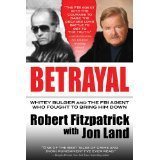 As a journalist born and bred just south of Boston, I followed the Whitey Bulger saga closely and even had a hand in breaking a big story or two about the mobster and his corrupt allies in the Boston Bureau of the FBI.
As a journalist born and bred just south of Boston, I followed the Whitey Bulger saga closely and even had a hand in breaking a big story or two about the mobster and his corrupt allies in the Boston Bureau of the FBI.
But Betrayal by Robert Fitzpatrick and Jon Land spills details about the decades-long case that even I had never heard.
Fitzpatrick, a poor kid who grew up to be a tenacious FBI agent, was the man top bureau officials handpicked to get to the bottom of accusations that FBI agents had protected the mobster, tipping him off when the Massachusetts State Police got too close and even looking the other way when he committed murders.
Land, a veteran crime novelist and a native New Englander, was put together with Fitzpatrick to help him spin the tale.
The story takes the reader along as Fitzpatrick blows the lid off the long-hidden web of drug-dealing, hijacking, murder, and official malfeasance.
The result is a book that is not to be missed by those who have followed the famous case for years, as well as for those who didn't.
You can buy the book here.








How To Write Mysteries: Advice From Novelists Including Me.
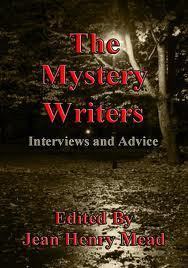 Fifty-eight mystery writers working in 12 sub-genres including thrillers, cozies, police procedurals, and hard-boiled detective novels contributed articles and interviews to The Mystery Writers, a new book of advice on how it's done.
Fifty-eight mystery writers working in 12 sub-genres including thrillers, cozies, police procedurals, and hard-boiled detective novels contributed articles and interviews to The Mystery Writers, a new book of advice on how it's done.
I'm honored to be included along with the likes of Sue Grafton, Lawrence Block, and J.A. Jance.
The book was edited by Jean Henry Mead and published by Medallion Books. It's available in both paperback and kindle editions. You can get your copy here.








April 4, 2012
A Master’s Wise And Practical Writing Advice
 Don Fry begins his wise and practical book of writing advice this way: “Here’s a radical idea: You can escape your teachers. You can write in ways suited to you, rather than ways you were taught.”
Don Fry begins his wise and practical book of writing advice this way: “Here’s a radical idea: You can escape your teachers. You can write in ways suited to you, rather than ways you were taught.”
In “Writing Your Way,” he offers hundreds upon hundreds of the writing tools complied over a lifetime of teaching, of careful reading, and of observing the professional writers who flock to him for advice. And then he demonstrates how to make use of the ones that work for YOU while ignoring the rest.
Great writing coaches are as scarce as Tar Heels fans at a Blue Devils pep rally. Fry, former head of the writing and ethics faculties at the prestigious Poynter Institute, is  one of the greatest of all time. I’m a professional writer with 40 years of journalism and two novels behind me, but I’ve never stopped learning from him–and never will.
one of the greatest of all time. I’m a professional writer with 40 years of journalism and two novels behind me, but I’ve never stopped learning from him–and never will.
Whether you are a novice or a professional, this book will make you a better writer. You can buy it here.









